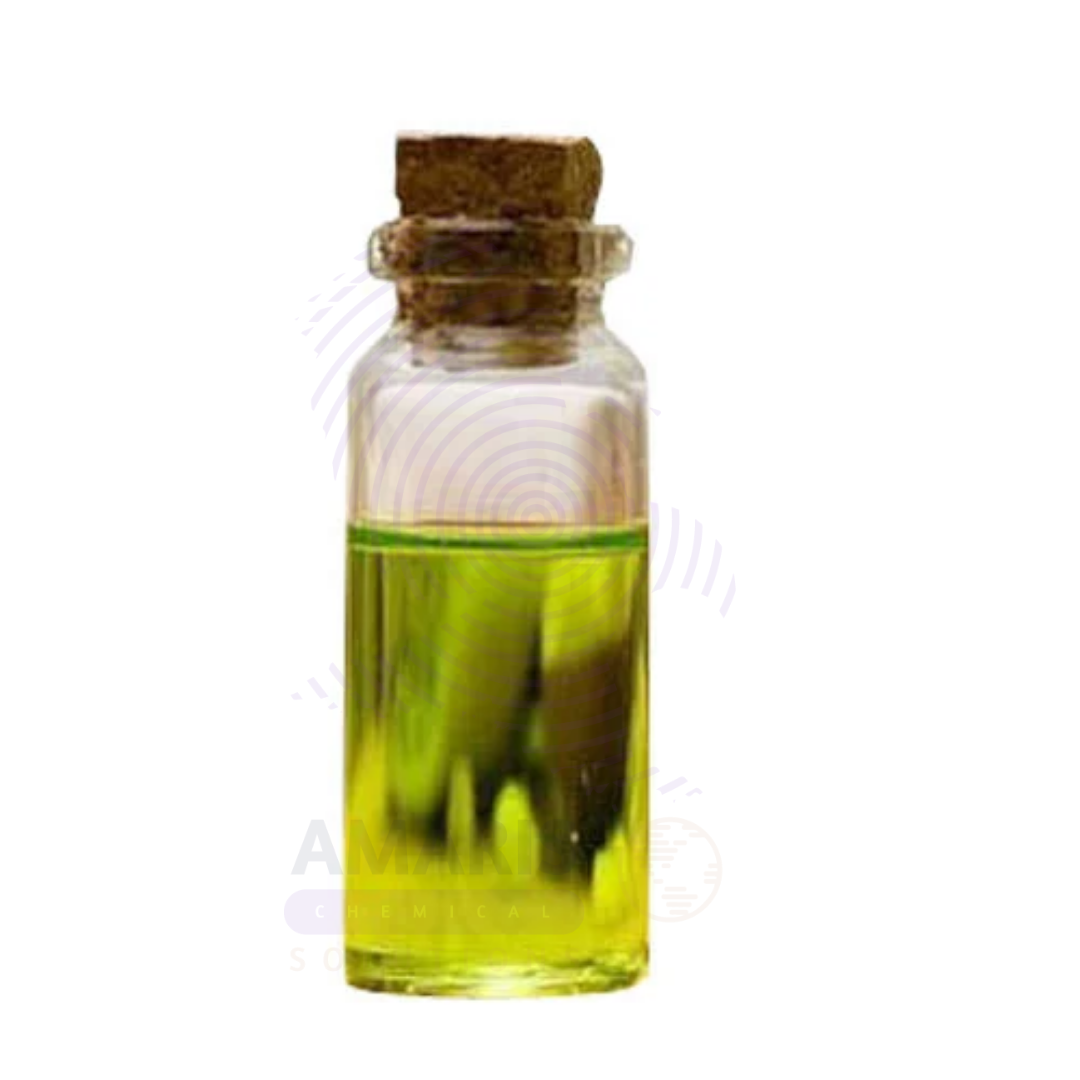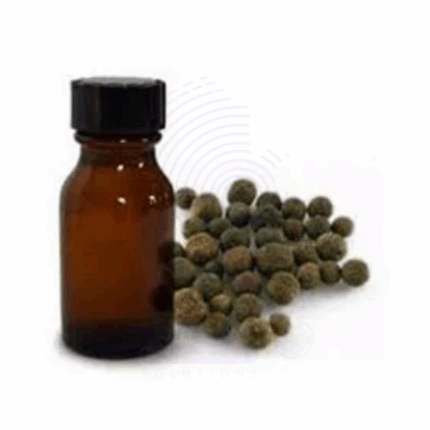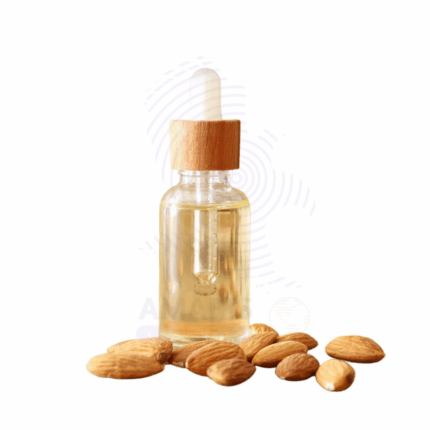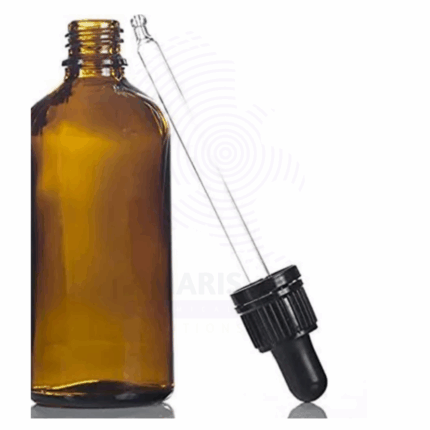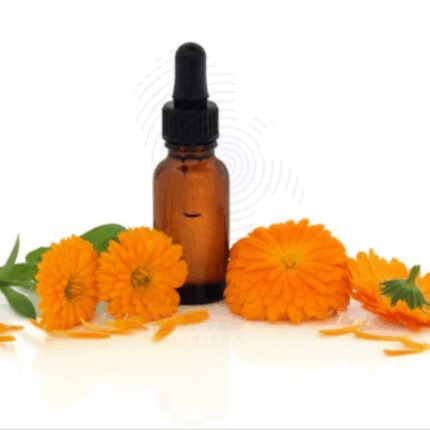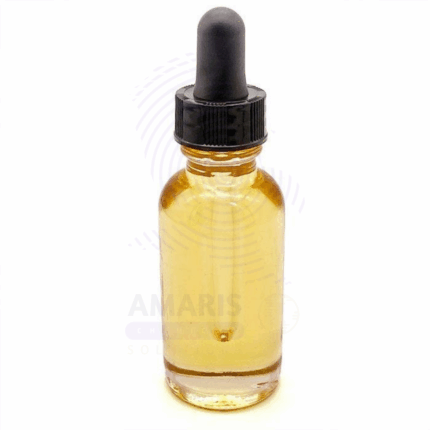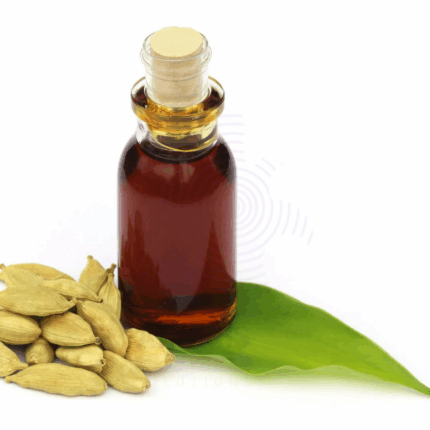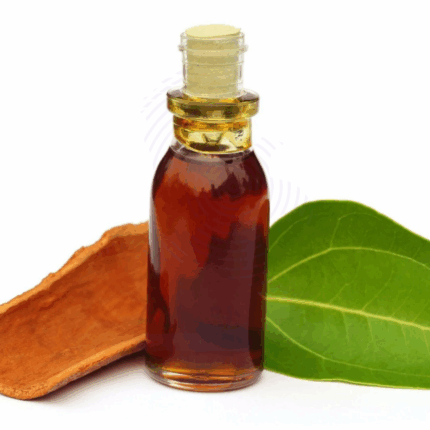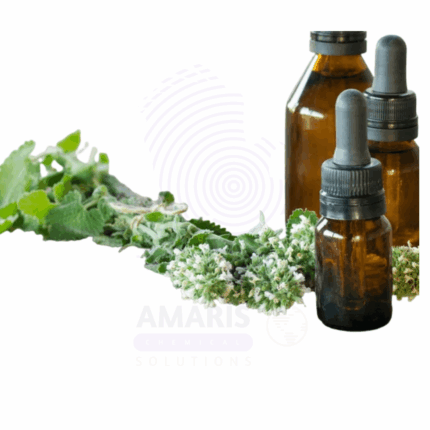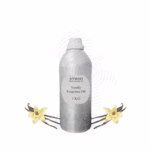
Vanilla Fragrance Oil
$ 29.00 Original price was: $ 29.00.$ 28.64Current price is: $ 28.64.
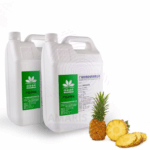
Pineapple Fragrance Oil
$ 25.00 Original price was: $ 25.00.$ 24.77Current price is: $ 24.77.
Vetivert Oil
Whatsapp Order
Vetivert Oil also known as Vetiver Essential Oil, is a thick, amber to dark brown essential oil derived from the steam distillation of the roots of Vetiveria zizanioides, a perennial grass native to India and Southeast Asia. It is highly prized for its deep, earthy, smoky, and woody aroma, often described as grounding and sensual. Rich in sesquiterpenes like khusimol, vetiselinenol, and alpha-vetivone, Vetivert Oil is known for its calming, anti-inflammatory, and skin-rejuvenating properties. Extensively used in perfumery, aromatherapy, and skincare, it also finds application in natural insect repellents, emotional wellness products, and high-end fragrances.
Description
Table of Contents
Toggle
Vetivert Oil
Primary Uses
- Aromatherapy & Wellness
- Diffused to reduce anxiety, stress, and nervous tension; promotes grounding and emotional stability
- Used in meditation blends to deepen focus and enhance mental clarity
- Included in sleep aids and bedtime diffuser blends for its calming and sedative effects
- Blended in emotional balance rollers to reduce restlessness and promote peace
- Cosmetics and Personal Care
- Added to facial oils, creams, and serums for anti-aging and skin-soothing properties
- Used in formulations for dry, irritated, or inflamed skin due to its cooling, anti-inflammatory effects
- Incorporated in body lotions, balms, and massage oils for a rich, earthy scent and skin nourishment
- Applied in men’s grooming products such as beard oils, colognes, and aftershaves for its grounding, woody aroma
- Blended into natural deodorants and foot care products for antimicrobial and odor-neutralizing functions
- Used in bath oils and body scrubs for a luxurious, spa-like experience
- Topical Applications
- Diluted in carrier oil and used as a spot treatment for acne-prone or inflamed skin
- Included in scar and stretch mark formulations for its regenerative properties
- Used in muscle relief salves and post-exercise balms to ease soreness and tension
Secondary Uses
- Fragrance and Ambient Scenting
- Used as a base note in luxury perfumery and high-end colognes for its fixative properties and earthy complexity
- Included in incense, scented candles, and room sprays to create a meditative, grounding environment
- Blended in seasonal and exotic fragrance formulations, especially in oriental and woody accords
- Applied in sachets and linen sprays to impart a long-lasting natural earth scent
- Cleaning and Detergent Products
- Added to eco-friendly floor and fabric cleaners for its antimicrobial and deodorizing qualities
- Used in artisanal cleaning sprays and natural air fresheners for its earthy aroma and purifying effects
- Industrial and Specialty Applications
- Employed as a natural fixative in perfumery and aromatics manufacturing
- Used in mosquito-repelling products, especially in tropical and natural insect control lines
- Incorporated in aromatherapeutic and spa-based product lines for brand-defining scent profiles
- Agricultural Applications
- Occasionally used in animal care products (in low, safe concentrations) for calming environments or pest control formulations
KEY PRODUCT FEATURES
1 Basic Identification Attributes
- Botanical Name: Vetiveria zizanioides
- Common/Trade Name: Vetivert Oil / Vetiver Essential Oil
- INCI Name: Vetiveria Zizanoides Root Oil
- CAS Number: 8016-96-4
- HS Code: 3301.29
- Synonyms: Khus Oil, Vetiver Root Oil
2 Physical & Chemical Properties
- Physical State: Thick, viscous liquid
- Color & Odor: Amber to dark brown; rich, earthy, smoky, woody aroma
- Solubility: Insoluble in water; soluble in alcohol and fixed oils
- Refractive Index: 1.510 – 1.530
- Specific Gravity: 0.970 – 1.030
- Main Components: Khusimol, alpha-vetivone, vetiselinenol, beta-vetivone
3 Safety & Hazard Attributes
- GHS Classification: Generally safe; may cause skin sensitization in rare cases
- Toxicity: Low toxicity when diluted properly; for external use only
- Exposure Limits: Refer to Safety Data Sheet (SDS)
- Allergen Information: Contains naturally occurring fragrance allergens such as limonene (trace)
4 Storage & Handling Attributes
- Storage Conditions: Store in tightly sealed containers in a cool, dry place, protected from light
- Container Type: Amber glass or stainless-steel containers with sealed closures
- Shelf Life: 36 months or more under proper storage
- Handling Precautions: Use gloves and avoid contamination during handling
5 Regulatory & Compliance Attributes
- Compliant with IFRA standards for fragrance applications
- Produced in GMP-compliant manufacturing environments
- Not classified as hazardous for shipping under normal regulations
6 Environmental & Health Impact
- Biodegradability: Biodegradable under typical environmental conditions
- Ecotoxicity: Low; safe at standard use concentrations
- Bioaccumulation: Not expected to bioaccumulate
SAFETY HANDLING PRECAUTIONS
Safety Handling Precautions
- PPE Required: Gloves and safety goggles for bulk handling
- Handling Guidelines: Use in well-ventilated areas; avoid direct contact with mucous membranes
First Aid Measures
- Inhalation: Move to fresh air; seek medical help if discomfort persists
- Skin Contact: Wash with soap and water; discontinue use if rash or irritation develops
- Eye Contact: Rinse cautiously with water; consult a physician if irritation continues
- Ingestion: Not intended for ingestion; seek medical assistance immediately
Firefighting Measures
- Fire Hazards: May be combustible at high temperatures
- Extinguishing Media: Dry chemical, foam, carbon dioxide, or water spray
- Special Precautions: Use protective equipment; avoid inhalation of fumes
- Hazardous Combustion Products: Carbon monoxide, carbon dioxide, and organic compounds
Related products
Allspice Pimento Berry Oil
Allspice Pimento Berry Oil is a warm, spicy-sweet essential oil steam-distilled from the dried berries of the Pimenta dioica plant, native to the Caribbean and Central America. Known for its rich, clove-like aroma with hints of cinnamon, nutmeg, and pepper, the oil derives its name from its resemblance to a blend of “all spices.” It contains high concentrations of eugenol and other phenolic compounds, lending it powerful antiseptic, analgesic, and aromatic properties.
Widely used in personal care, massage oils, pharmaceutical balms, and perfumery, Allspice Oil is prized for its warming and comforting scent as well as its therapeutic action. It also finds applications in culinary essence formulations, natural insect repellents, and wellness therapies.
Almond Fragrance Oil
Almond Fragrance Oil is a synthetic or naturally blended aromatic compound designed to replicate the warm, sweet, and nutty scent of almonds. It may incorporate notes of marzipan, vanilla, or cherry-like tones to mimic the characteristic aroma of bitter almonds without the presence of cyanogenic compounds. Unlike essential oils, fragrance oils are created for consistent aroma performance and are widely used across cosmetics, personal care, household products, and scented formulations.
This versatile oil delivers a nostalgic, comforting scent often associated with desserts, cleanliness, and warmth. It is valued for its stability in soaps, lotions, candles, and air care products. Almond Fragrance Oil is typically formulated to be allergen-compliant and IFRA-certified for safe use across applications.
Basil Exotic oil
Basil Exotic Oil is a steam-distilled essential oil extracted from the leaves of the Ocimum basilicum plant, specifically cultivated for its high linalool and methyl chavicol (estragole) content. Known for its sweet, herbaceous, and slightly spicy aroma, Basil Exotic Oil offers powerful aromatic and therapeutic properties. It is widely used in perfumery, cosmetics, personal care products, and aromatherapy for its stimulating, clarifying, and refreshing effects.
The oil’s high potency and distinctive scent make it a preferred choice in high-end fragrances, hair care products, and massage blends. It is also appreciated for its antibacterial, antifungal, and anti-inflammatory characteristics, making it valuable in natural wellness and skincare formulations.
Calendula Oil Infused
Calendula Oil Infused is a golden-yellow carrier oil produced by macerating the dried flower petals of Calendula officinalis (commonly known as pot marigold) in a base oil, typically sunflower, olive, or sweet almond oil. This infusion draws out the calendula flower’s active constituents—including flavonoids, triterpenoids, and carotenoids—resulting in a gentle yet potent botanical oil widely used for its anti-inflammatory, healing, and skin-soothing properties.
Renowned in traditional herbalism and modern natural skincare, Calendula Infused Oil is especially valued for treating sensitive, damaged, or irritated skin. It’s a go-to oil in formulations for baby care, wound healing, and after-sun products. Unlike essential oils, this is not a distilled product and is safe for direct application to the skin.
Capaiba Balsam Oil
Capaiba Balsam Oil is a natural oleoresin essential oil extracted from the trunks of Copaifera species, primarily Copaifera officinalis, native to South America. This oil is obtained via tapping or sustainable extraction methods and is prized for its anti-inflammatory, antibacterial, antioxidant, and analgesic properties. It has a sweet, woody, slightly balsamic aroma and is golden to light brown in color with a medium viscosity.
Copaiba Balsam Oil is rich in β-caryophyllene, a sesquiterpene known for its therapeutic effects, especially in skincare and wellness applications. It is widely used in cosmetics, personal care, aromatherapy, and pharmaceutical preparations, particularly those targeting pain, skin health, and inflammation.
Cardamon Oil
Cardamon Oil is a premium essential oil steam-distilled from the seeds of Elettaria cardamomum, a plant native to India and Sri Lanka and widely cultivated across tropical regions. It carries a warm, spicy-sweet aroma with hints of eucalyptus and citrus, and ranges from colorless to pale yellow in appearance. Known for its digestive, antiseptic, expectorant, and uplifting qualities, it is valued in aromatherapy, perfumery, cosmetics, pharmaceuticals, and food applications.
Rich in compounds like cineole (1,8-cineole), α-terpineol, and linalyl acetate, Cardamom Oil provides both flavor and therapeutic effects, making it a versatile ingredient across several industries.
Cassia Oil
Cassia Oil is a potent essential oil steam-distilled from the bark of Cinnamomum cassia, commonly known as Chinese cinnamon. It carries a strong, spicy, and warm aroma similar to true cinnamon but is more pungent and intense. Its reddish-brown to yellow appearance and high cinnamaldehyde content give it powerful antimicrobial, antifungal, and warming properties. Cassia Oil is used across various industries including food flavoring, pharmaceuticals, cosmetics, aromatherapy, and household products. Due to its strength, it is typically used in diluted concentrations.
Catnip Oil
Catnip Oil is a highly aromatic essential oil steam-distilled from the leaves and flowering tops of Nepeta cataria, a herbaceous plant from the mint family. Known for its characteristic minty, herbaceous, and slightly sweet scent, Catnip Oil contains nepetalactone, a compound recognized for its insect-repellent and calming properties. Though commonly associated with its euphoric effects on cats, Catnip Oil is widely used in aromatherapy, natural insect repellents, and personal care products for humans. It also finds niche applications in pet care formulations and herbal preparations.


 Preservatives(food)
Preservatives(food) Flavor Enhancers
Flavor Enhancers Acidulants
Acidulants Sweeteners
Sweeteners Antioxidants
Antioxidants Colorants(food)
Colorants(food) Nutraceutical Ingredients (food)
Nutraceutical Ingredients (food) Nutrient Supplements
Nutrient Supplements Emulsifiers
Emulsifiers
 Collectors
Collectors Dust Suppressants
Dust Suppressants Explosives and Blasting Agents
Explosives and Blasting Agents Flocculants and Coagulants
Flocculants and Coagulants Frothers
Frothers Leaching Agents
Leaching Agents pH Modifiers
pH Modifiers Precious Metal Extraction Agents
Precious Metal Extraction Agents
 Antioxidants(plastic)
Antioxidants(plastic) Colorants (Pigments, Dyes)
Colorants (Pigments, Dyes) Fillers and Reinforcements
Fillers and Reinforcements Flame Retardants
Flame Retardants Monomers
Monomers Plasticizers
Plasticizers Polymerization Initiators
Polymerization Initiators Stabilizers (UV, Heat)
Stabilizers (UV, Heat)
 Antifoaming Agents
Antifoaming Agents Chelating Agents
Chelating Agents Coagulants and Flocculants
Coagulants and Flocculants Corrosion Inhibitors
Corrosion Inhibitors Disinfectants and Biocides
Disinfectants and Biocides Oxidizing Agents
Oxidizing Agents pH Adjusters
pH Adjusters Scale Inhibitors( water)
Scale Inhibitors( water)
 Antioxidants(cosmetic)
Antioxidants(cosmetic) Emollients
Emollients Fragrances and Essential Oils
Fragrances and Essential Oils Humectants
Humectants Preservatives
Preservatives Surfactants(cosmetic)
Surfactants(cosmetic) Thickeners
Thickeners UV Filters
UV Filters
 Fertilizers
Fertilizers Soil Conditioners
Soil Conditioners Plant Growth Regulators
Plant Growth Regulators Animal Feed Additives
Animal Feed Additives Biostimulants
Biostimulants Pesticides (Herbicides, Insecticides, Fungicides)
Pesticides (Herbicides, Insecticides, Fungicides)
 Active Pharmaceutical Ingredients (APIs)
Active Pharmaceutical Ingredients (APIs) Excipients
Excipients Solvents(pharmaceutical)
Solvents(pharmaceutical) Antibiotics
Antibiotics Antiseptics and Disinfectants
Antiseptics and Disinfectants Vaccine Adjuvants
Vaccine Adjuvants Nutraceutical Ingredients (pharmaceutical)
Nutraceutical Ingredients (pharmaceutical) Analgesics & Antipyretics
Analgesics & Antipyretics
 Analytical Reagents
Analytical Reagents Solvents(lab)
Solvents(lab) Chromatography Chemicals
Chromatography Chemicals Spectroscopy Reagents
Spectroscopy Reagents microbiology-and-cell-culture-reagents
microbiology-and-cell-culture-reagents Molecular Biology Reagents
Molecular Biology Reagents Biochemical Reagents
Biochemical Reagents Inorganic and Organic Standards
Inorganic and Organic Standards Laboratory Safety Chemicals
Laboratory Safety Chemicals Specialty Laboratory Chemicals(Special Laboratory Equipment)
Specialty Laboratory Chemicals(Special Laboratory Equipment)
 Demulsifiers
Demulsifiers Hydraulic Fracturing Fluids
Hydraulic Fracturing Fluids Scale Inhibitors(oil)
Scale Inhibitors(oil) Surfactants(oil)
Surfactants(oil) Drilling Fluids
Drilling Fluids
 Dyes and Pigments
Dyes and Pigments Bleaching Agents
Bleaching Agents Softening Agents
Softening Agents Finishing Agents
Finishing Agents Antistatic Agents
Antistatic Agents
 Admixtures
Admixtures Waterproofing Agents
Waterproofing Agents Sealants and Adhesives
Sealants and Adhesives Curing Compounds
Curing Compounds Concrete Repair Chemicals
Concrete Repair Chemicals Anti-Corrosion Coatings
Anti-Corrosion Coatings
 Surfactants(cleaning)
Surfactants(cleaning) Builders
Builders Enzymes
Enzymes Solvents (Cleaning)
Solvents (Cleaning) Fragrances
Fragrances
 Electronic Chemicals
Electronic Chemicals Catalysts
Catalysts Lubricants
Lubricants Photographic Chemicals
Photographic Chemicals Refrigerants
Refrigerants Automotive chemicals
Automotive chemicals Pyrotechnic Chemicals
Pyrotechnic Chemicals
 Biodegradable Surfactants
Biodegradable Surfactants Bio-based Solvents
Bio-based Solvents Renewable Polymers
Renewable Polymers Carbon Capture Chemicals
Carbon Capture Chemicals Wastewater Treatment Chemicals
Wastewater Treatment Chemicals
 Pigments
Pigments Solvents(paint)
Solvents(paint) Specialty Coatings
Specialty Coatings Binders/Resins
Binders/Resins Additives
Additives Driers
Driers Anti-Corrosion Agents
Anti-Corrosion Agents Functional Coatings
Functional Coatings Application-Specific Coatings
Application-Specific Coatings
 Fresh Herbs
Fresh Herbs Ground Spices
Ground Spices Whole Spices
Whole Spices Spice Blends
Spice Blends Dried Herbs
Dried Herbs
 Leavening Agents
Leavening Agents Dough Conditioners
Dough Conditioners Flour Treatments
Flour Treatments Fat Replacers
Fat Replacers Decoratives
Decoratives Preservatives(baking)
Preservatives(baking)
 Plasticizers & Softeners
Plasticizers & Softeners Reinforcing Agents
Reinforcing Agents Adhesion Promoters
Adhesion Promoters Vulcanizing Agents
Vulcanizing Agents Antidegradants
Antidegradants Blowing Agents
Blowing Agents Fillers & Extenders
Fillers & Extenders Accelerators & Retarders
Accelerators & Retarders